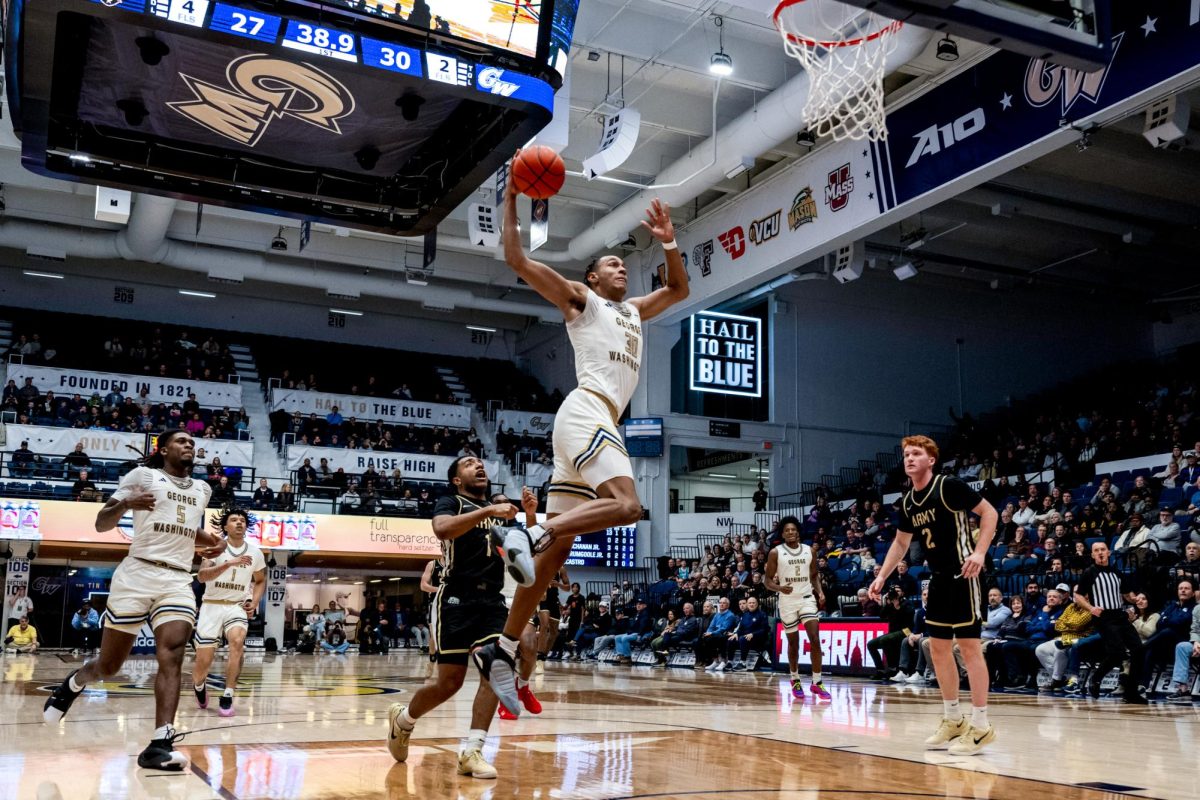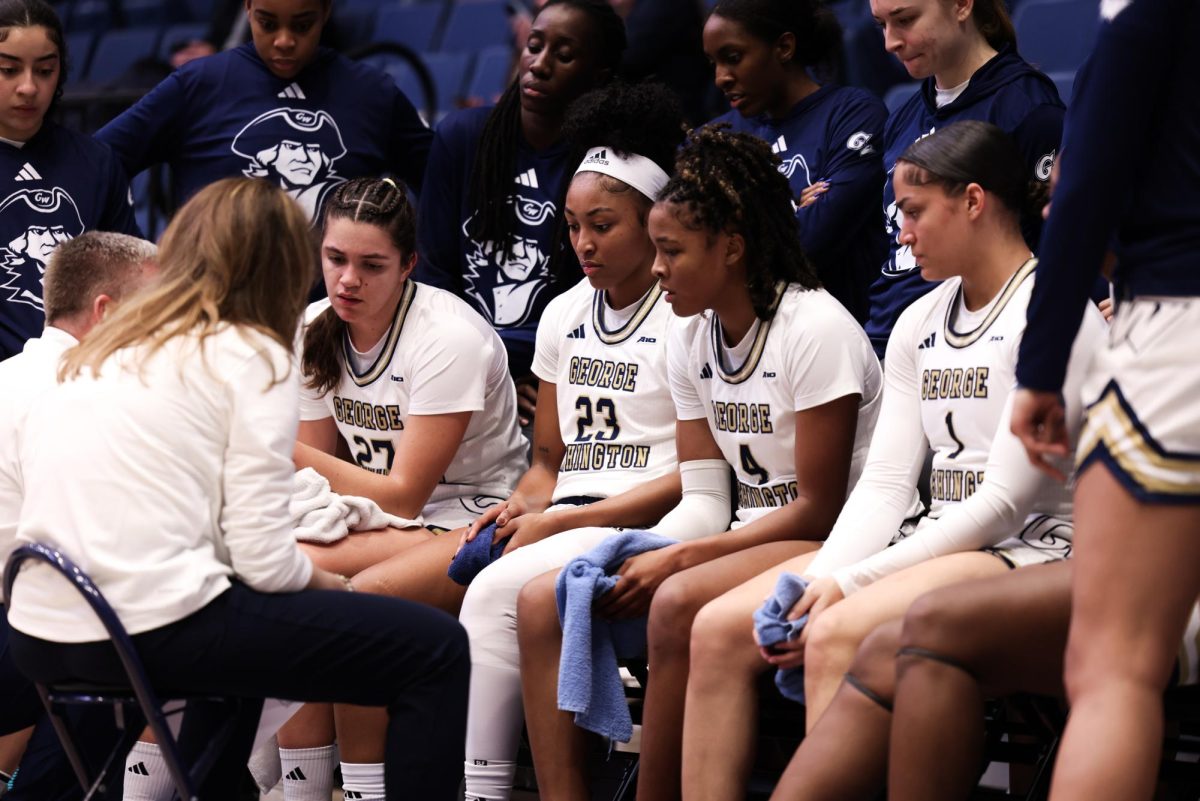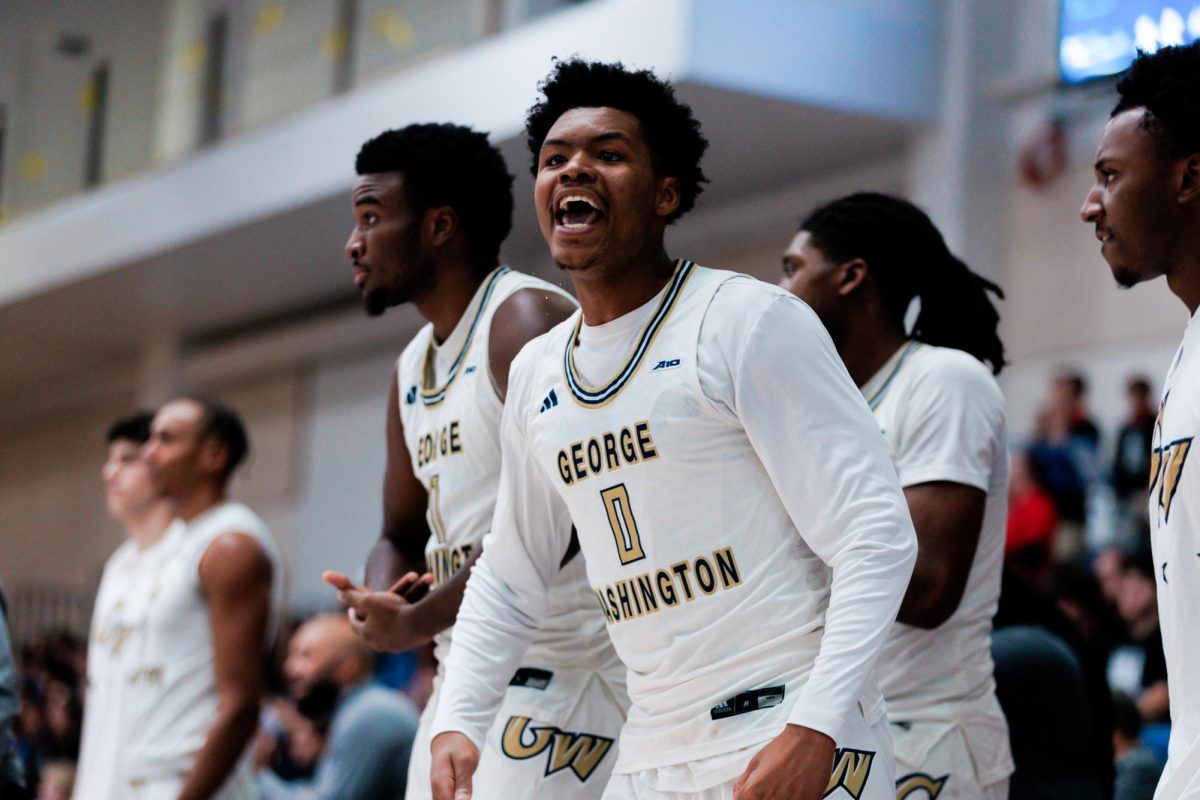University subcommittees charged with reviewing GW’s athletic department presented their recommendations for changes at four sparsely attended meetings last week.
The self-study is part of the University’s effort to gain NCAA certification, which is necessary for GW’s teams to compete in NCAA athletics. The NCAA requires all schools to conduct a self-study every 10 years to ensure their athletic departments are meeting NCAA standards. Each school is required to examine its athletic department, correct any problems and present its findings to the NCAA for certification.
GW is conducting a self-study for the first time. Subcommittees, which were comprised of various University administrators, explored the athletic department’s general compliance with NCAA rules, academic and fiscal integrity, and commitment to equality.
While no major problems were found with the athletic department, each subcommittee found minor shortcomings and made recommendations to correct them.
“If you finished the self-study and didn’t find anything wrong, (the NCAA) would be suspicious,” Director of Athletics Jack Kvancz said. “If you find something in the self-study, then you should fix it. You’re only in trouble (with the NCAA) if you don’t fix it.”
The subcommittee on governance and commitment to rules compliance presented its findings Oct. 27. The subcommittee helped create a mission statement for the athletic department. University Registrar Brian Selinsky, the subcommittee’s chair, said it also recommended an athletics council be established to evaluate the athletics department’s procedures.
“It wouldn’t be a police force or anything,” he said. “The council would be a place where concerns or suggestions could be raised.”
The subcommittee also recommended that student athletes not be allowed to register using the Touch-Tone telephone system during the first two weeks of a semester. That would prevent athletes from accidentally make themselves ineligible to compete by registering for too few credit hours.
The subcommittee on academic integrity set out to see how athletes compare academically with the general student body and presented its observations Oct. 28. It found athletes’ standardized test scores are 10 percent to 15 percent lower than the University average, but their graduation rate is 20 percent to 30 percent higher. The subcommittee found GW’s athletes are above the national average academically.
The subcommittee on fiscal integrity found the athletic department’s financial issues are handled in the same way as they are in other divisions of the University, and GW’s financial procedures generally coincide with NCAA regulations.
The subcommittee on the commitment to equity explored the athletic department’s commitment to gender and racial equality in hiring practices and on sports teams.
Chair Susan Kaplan said the University is in good shape, especially after GW’s Board of Trustees approved this summer the addition of four new women’s varsity teams over the next four years.
The four subcommittees made their recommendations to a larger, main self-study committee that will make recommendations to the Board of Trustees and the Council of Deans, who will decide whether to institute the changes.
The NCAA will dispatch a review team in April to examine GW’s self-study report. The report will fully outline the state of the athletic department and describe what changes have been and will be made.
The four-member NCAA review team will be comprised of a president and three administrators from schools similar to GW. The team will review GW’s report for the NCAA and return it to the school for corrections. The University then will submit a corrected report which will form the basis for the NCAA’s decision about whether GW should be certified, partially certified or denied certification.
Kvancz said GW’s athletic department is on solid footing, but the self-study must be thorough. He said one school already has been denied NCAA certification recently and a few schools got partial certification.
A school given partial certification has not corrected the problems in its program. The school will not be fully certified until the NCAA decides the school has implemented effective changes, Kvancz said.
-Dustin Gouker contributed to this report.






